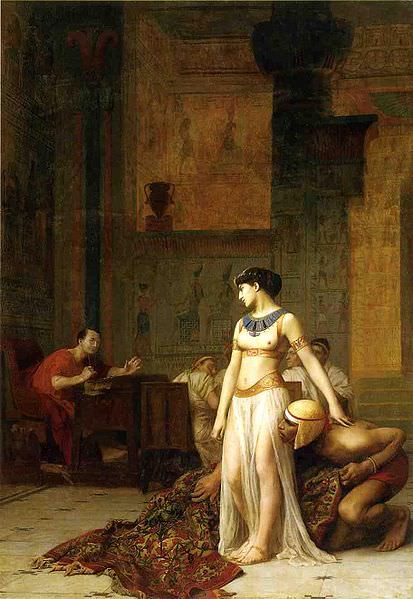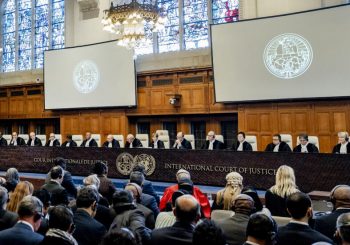Mohamed Naguib stands over a crowd. It’s 1952, and the street is a flood of vibrant compassion and indispensable hope. It is at this moment that all present, including Naguib himself, are faced with Egypt’s idle, silent truth: two millennia of subjugation.
Until that instant—where he motions to a roaring, emancipated crowd—Egypt had spent approximately 2,294 years under foreign rule. From antiquity’s back-to-back conquests, to imperialistic bait-and-switches, Egypt hasn’t caught its breath for countless lifetimes. For arguably too long, Egyptian ideology has been siphoned through foreign power, using foreign tongues.
The faces of Greco-Roman gods watch over Alexandria, street signs are dotted and accented in unintentional remembrance of Napoleon, and the essence of Egypt lost between latinized Arabic and forgotten Coptic.
There’s a glamour to modern-day diversity—but the past is not so easily polished.
From ancient Egypt to the 1950s: here is how long it took for an Egyptian to rule Egypt.

The Persian Kings
Rapidly expanding and twice as ravenous, Persia annexed Egypt in 525 BCE with no intent on reviving its glory days. Rather, Persian kings had a steely, cold-blooded disposition; they employed “strict and harsh rule over the Egyptian people,” making Egypt into yet another satrapy (province) of the Persian Empire. Despite their political and economic monopolization, they allowed locals to continue their traditions as they had for centuries.
No temples were leveled, and at the time, the invading king, Cambyses, oversaw the construction of a canal connecting the Red Sea to the Nile.
Though minute shows of courtesy paired with harsh, violent oppression did not have Egyptians warming to their rulers. Rather, during Persian rule, Egyptians fought to free themselves from an ever-heavying ball-and-chain. Every crevice was characterized by constant, tireless uprisings and subsequent repression.
It was these uprisings, however, that created the soft-tissue needed for the Greeks, in a fit of idealism, to seize control of Egypt and drive out Persian influence after two periods of invasion (525 – 404 BCE and 343 – 331 BCE).

%3Amax_bytes(150000)%3Astrip_icc()%2Fbas-relief-fragment-portraying-cleopatra-102106521-58bf4d053df78c353c8225bc.jpg&f=1&nofb=1)
Alexander and the Ptolemies
Enamored by its gods and possessed by its power, Alexander the Great enters Egypt a king. After decades of Persian subjugation, Egyptian morale was shot and any helping hand provided, was an opportunity worth taking. When Alexander and his generals showed courtesy and tentative interest in Egyptian ideologies, the doors swung open to a new pharaoh and god.
Crowning himself Pharaoh, Alexander became an attractive presence in Egypt despite how short-lived that reality was. He was received with festivities and crowned in Memphis, marrying his Greek games to the Egyptian people. Still, the Macedonian king had a vision to control the natural, commercial and geostrategic assets Egypt provided in the fight against Persia.
Most famously, it was in 331 BCE that he founded the still standing cosmopolitan behemoth that is Alexandria. Though he hadn’t lived long enough to see it realized, it was his general and successor to Egypt, Ptolemy I Soter, that would truly cement Alexandria’s importance.
From Ptolemy, and in his name, Egypt’s Ptolemaic Dynasty had begun. They controlled Egypt for nearly three centuries, isolating themselves in Alexandria. Greek was localized as the city’s language, and their kings did not marry into Egyptian bloodlines.
Aside from Ptolemy I Soter, most of the Ptolemies proved inept, weak rulers of Egypt. It was when Cleopatra came to power—a Macedonian in blood and an Egyptian in spirit only—that Egypt saw itself a strong ruler. This was not to last, however; overzealous with her trysts, Cleopatra would soon leave Egypt in the hands of Rome by 30 BCE.


Romanization
Cleopatra’s suicide spelled the death of Egypt for some thousand years to come. In 30 BCE, Egypt became the property of Rome, and by extension, the domain of Roman Emperor Gaius Julius Octavius (Augustus). His control was absolute; all Egyptian traditions were permanently suspended, in all of its social and religious forms. Fundamental changes were dealt to the administrative and social sectors, and soon enough, the ranks were rife with Romans of the equestrian class.
Alexandria was considered Egypt’s only hellenized city, and therefore enjoyed the greatest concessions; Alexandrians were Hellenic residents, non-Alexandrians were Egyptians in the eyes of Rome. Hellenic residents were considered the socio-political crème de la crème of society, the elite tier of both sociopolitical and economic life.
As Rome fell into disarray some three centuries later, devolving into shrapnel cities, Egypt became part of the newly formed Byzantine Empire; it remained such until the 7th century CE when it would come to fall under Arab control.

Arabism, Allah, and the Caliphate
The Muslim conquest of Egypt is perhaps the one with most lasting influences. After the passing of Islam’s prophet Muhammad in 632 CE, the religion had already amassed an impressive, if not daunting, amount of followers. In addition to this, plans of expansion had been put into motion; North Africa as a whole would soon be taken under wing as part of the First Islamic Empire.
A non-Arab Egypt was one of the first to be annexed into the empire. This marked the advent of the modern era in Egypt. This is an era where Egypt cast off pagan traditions and embraced Abrahanic belief systems. It’s worth noting that before the advent of Islam, Christianity had found its way into Egyptian homes during the Roman occupation. It’s this period where ancient dialects were transformed into that of Coptic.
The process of Arabization however, was a slow one. Arabic was not immediately employed as the country’s primary tongue; Greek was still used as the official language of the state up until 706 CE, with Coptic dominating the al-Fustat region. Religion was even slower, given the “lack of pressure from the conquerors.”
Over time, this “sharply transformed” Egypt, and eradicated the impacts of Western Greco-Roman influences. As Egypt would become a core node of the Islamic Caliphate, Islam would remain its dominant faith millennia later.


Ottomans and Mamluks
The second wave of Islamic conquest did not come from the East, but rather from Asia Minor—present day Turkey. From 1250 CE through 1517 CE the Mamluks reigned over Egypt, but would later be defeated by the Ottomans. Seizing control of Egypt, it became another province governed by the Ottoman capital of Constantinople.
During this period, Egypt was in a state of intentional deterioration; it was exploited as a source of taxation, with education overturned, and trade siphoned through Constantinople alone. The economic decline that had surfaced at the tail ends of the Mamluk period continued, exacerbated by the Ottomans, and with it “came a decline in Egyptian culture.”


Napoleon and the Orient
With the rise of imperialism, came the fall of Egypt into western control once more. Entering Cairo in 1798 CE, Napoleon sought to conciliate the population—with focus on the religious scholars at the time—by showcasing sympathy and respect for Islam. He developed divans (councils) where he could draw on Egyptian opinion on matters of state.
In essence, his colonial conquest “endeavored to bring Enlightenment to the Orient;” it was justified exclusively on the basis of liberating the region from its supposed despots. With this, history recorded Napoleon’s short stay in Egypt with several significant milestones.
For the first time in military history, a martial campaign brought with it the necessary scholars to “inaugurate the impact of the West” in a near permanent fashion, still felt to this day. This included the employment of a legislative sector which has remained virtually unchanged.
To many, Napoleon “unveiled Egypt to Europe” and fortified its socio-economic potential in the eyes of the West. Laying the foundation for modern Egyptology as well as permanently altering Egypt’s political strata, it is no doubt that France has left a blinding local influence.
Fluctuating between western and Turkish rule, the divisive moment came in May 1805 CE when a revolt put Muhammad Ali as viceroy of Egypt. He was an Albanian Turk, and during his era Egypt flourished both academically and politically. This did not stop renewed European intervention as of 1879 CE, wherein later Egypt would fall under British domination as of 1882 CE.


Britain: A Matter of Protectorates and Property
After the last minute withdrawal of the French from Egypt in the wake of instability, British powers seized control of the state. Not only did this result in a flaring of already-hot regional rivalries between the United Kingdom and France, but afforded the former with strategic interest and full political command of the area.
While the British allowed Mohammed Ali’s successors to remain in symbolic power, several issues surfaced during Britain’s unorthodox presence in Egypt. The first of which, naturally, came in the form of global recognition; “the main European opponents of the British position were the French, who resented the abolition of the Dual Control (December 1882).”
Soon however, all decisions regarding Egypt would go through London first. The occupation created new policies and attached its ministers and advisors to key roles in government. The monarchy was reduced to an unaffiliated entity, uninvolved in the affairs of administration and state. This arrangement lasted for upwards of 70 years, from the Anglo-Egyptian War of 1882 until the Suez Crisis of 1954.
However, the events of 1952 revolution were decisive in detaching, permanently, foreign rule from Egypt: the birth of a republic.


Egypt’s Republic: Reborn
With that, history returns to Mohamed Naguib: an Egyptian-Sudanese man and the first president of a reborn Egypt. After the Free Officers Movement overthrow the monarchy and effectively end British rule in Egypt, Egypt is returned to its native population—time-worn, war-worn, and ostensibly undefeated.







Comments (3)
[…] كم مضى على حكم المصريين لمصر؟ […]
[…] كم مضى على حكم المصريين لمصر؟ […]